
If it's time to take the dive into van life, there's quite a bit to consider when pricing the van that's best for you. It's easy to say that the best van for you is simply the one you'll be happiest living in during your on- and off-road adventures.
However, in order to know the answer to which is the best van is knowing what to look for. This is the foundation on which you will be literally building your new life on wheels with. So first and foremost you need to know what to look for in your quest.
With that saidf, there are some important questions to ask yourself:
To help you, let's first cover the different types of vans available.
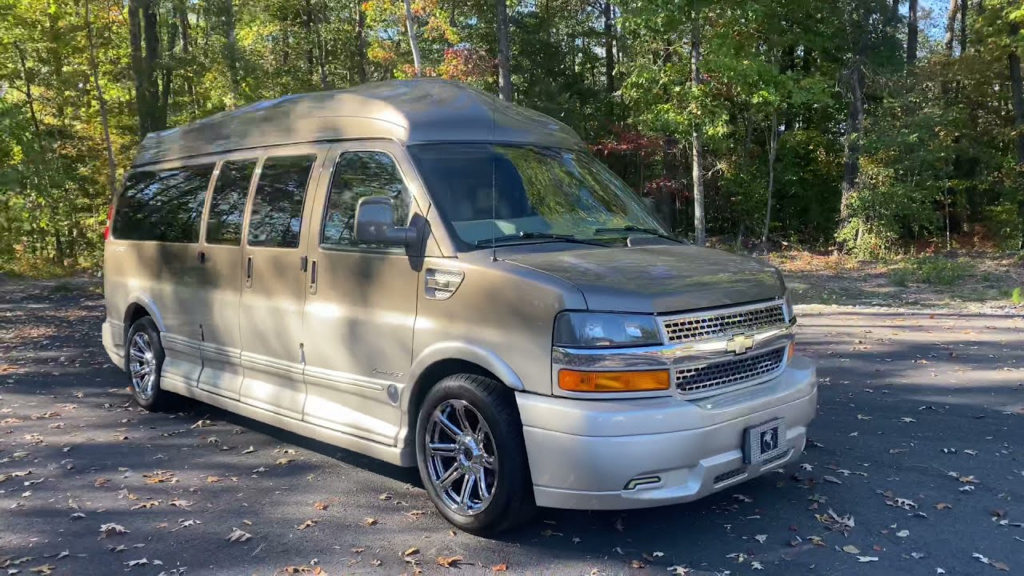
Cargo vans are the low-budget starting point for many van lifers. You can get a dependable used one for $5,000 or less.
In the United States, parts are inexpensive and widely available.
Vendors often have service records and mechanics are very familiar with them.
Conversion vans are cargo vans that have been improved (converted) by the manufacturer.
They have the same chassis, but with additional built-in features such as seats that fold into a bed.
Both cargo vans and conversion vans are available in high-top (higher ceiling) configurations with varying amounts of headroom.
They're ideal for stealth camping because they are commonly used as service vehicles for stealth camping.

Sprinter, ProMaster, and Transit vans are a style of cargo van referred to as Euro vans.
The difference lies in the fact that their chassis is not based on a truck design. The cab is moved forward over the wheels for additional space.
Euro vans are attractive, more expensive, and often used as luxury delivery trucks.
Finding a rust-free Euro van for less than $15,000 will be challenging due to its growing popularity.
However, if properly maintained, they have an excellent reputation as long-lasting reliable vehicles.
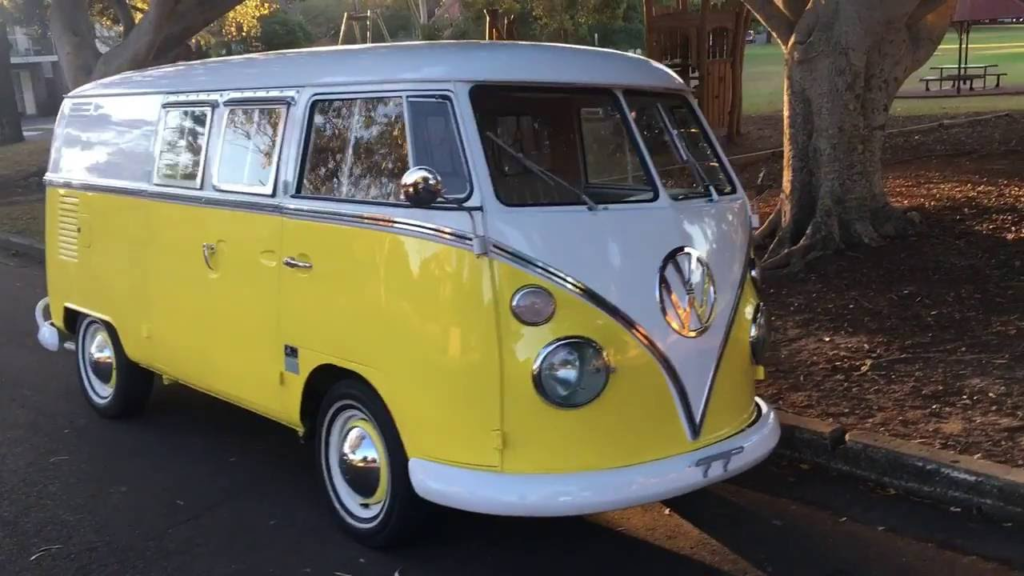
VW Buses, Vanagons, and "hippie-mobiles" are ideal for weekend escapes and beauty shots.
They come with a high initial cost ($15,000 plus) but are relatively simple to repair. Parts are easy to find and are popular with the DIY mechanic crowd.
While great for showing off, vintage Volkswagen vans make stealth camping virtually impossible.
Another drawback is the engine. Expect around 90 horsepower and less than 20 miles to the gallon when loaded down. For this reason, trying to climb steep inclines is a challenge.
There are many benefits of a conversion van over a traditional RV. I ranked this list based on luxury and comfort, versatility in build styles, and feature benefits (like having a high roof option).
Ultimately, the right van for you is the one that best suits your needs and budget. Check out the Van Buying Tips section to get a better handle on what those needs may be.

Specifications
Sprinter camper vans offer formidable off-road capability, are easy to drive, and have the best payload in their class.
Mercedes Sprinter vans come with two drivetrain options, a diesel or gas engine, and 21 cargo van versions.
Many Class B RV manufacturers, including Airstream and Winnebago, use Mercedes Sprinter vans.
Sprinter vans are recognized for their spacious passenger compartments and high-quality materials.
Their main disadvantage is the costs associated with them. Replacement parts, higher quality fuel, and dealership transport are all pricey.
However, if you've got the money, the Mercedes Sprinter has everything you need to live van life in luxury.
Pros
Cons
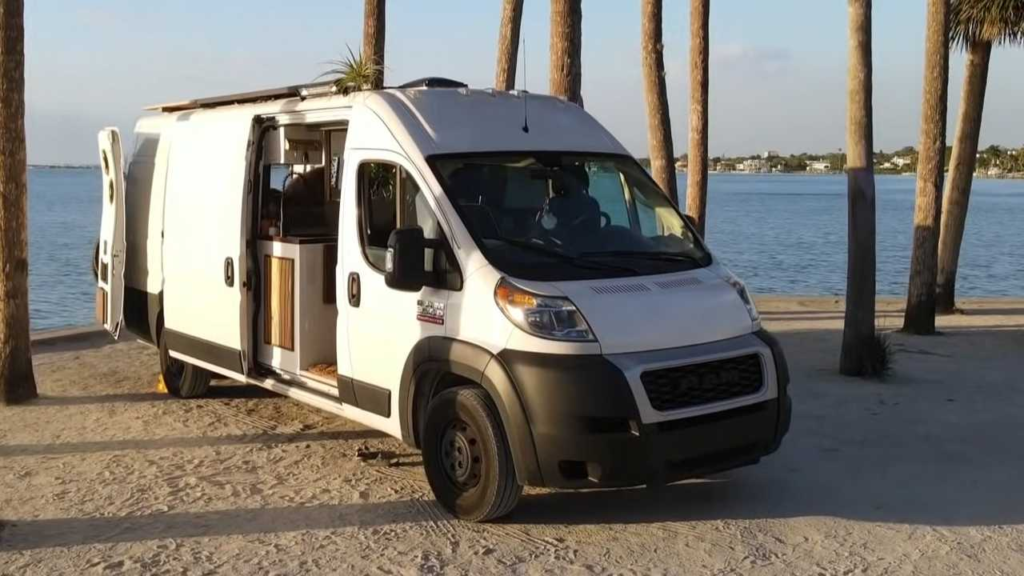
Specifications
Dodge Ram ProMasters resemble Mercedes Sprinters and Ford Transits in appearance.
While not as flashy as sprinters or as tall as transits, ProMasters are the broadest cargo vans available.
The van's walls rise more vertical, which makes it easier to maximize space if you're planning to build it yourself.
If not, there are plenty of conversion van services that offer custom conversions to suit your van life needs.
Additionally, they are incredibly simple and affordable to repair (when compared to Mercedes Sprinter vans). They're also noticeably quicker and easy to handle.
One thing to keep in mind is that these vans have front-wheel drive. Weight distribution will need to be prioritized in your planning.
Pros
Cons

Specifications
In 2014, Ford discontinued production of their extremely successful Econoline cargo van and replaced it with the Transit.
Ford transits are normally RWD (rear-wheel drive), although there is a 4WD variant available.
They're simple to repair, so locating a repair shop is easy.
The Ford Transit high roof stands an impressive 6 feet 9.5 inches tall.
This officially makes it the highest-roof van option perfect for taller people.
However, the van's towing capacity is not as impressive as some of its competitors.
Pros
Cons

Specifications
The Ford Transit E-series Econoline takes the spot for the most affordable and dependable van conversion option.
Many owners have added 4x4 capability to their Econolines, transforming them into off-roading beasts. They also offer a quiet ride.
It is not unusual to come across old models that have been meticulously maintained by firms who have used them as work vans.
The biggest disadvantage compared to higher ranking spots is the low roof. If you need standing room, you'll have to go with another option.
Pros
Cons
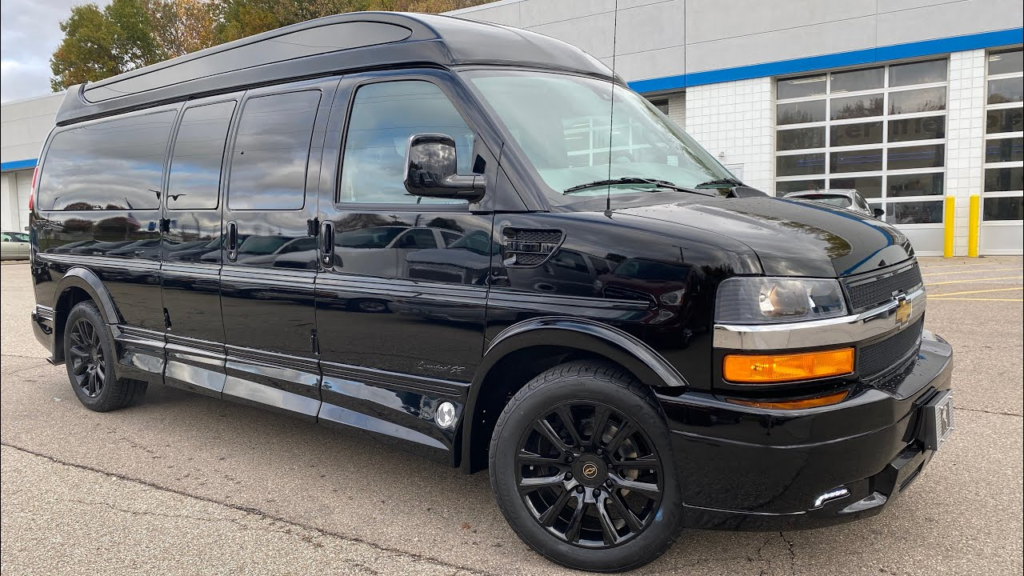
Specifications
GMC replaced the Vandura with the Savana in 1996. Chevy rebadged the same van as the Express.
Although none of these vans were ever built with high tops, plenty of owners did.
You can find models with back seats that fold down into a bed, a TV, and a VCR.
Another noteworthy feature is their tremendous towing capacity, which can reach 10,00 pounds depending on the type.
Pros
Cons

Specifications
Here I'm referring to a Dodge, Chevy, or Ford van that's been converted into a premium passenger car by a third party.
Built-in cupboards, colorful lighting, and even window coverings are common features of converted vans.
Many have a TV and VCR, distinctive overhead lighting, captain's chairs, and a high fiberglass roof.
Conversion vans are some of the greatest possibilities for an economical way to live in a van.
Newer conversion vans may cost up to $30,000, but if you don't mind living in an older van, you can find fantastic prices.
Using Facebook Marketplace, Craigslist, or eBay, you can find vintage conversion vehicles at very low prices.
Pros
Cons

Specifications
The Chevrolet Astro van is one of the cheapest vans on the market.
Chevy Astro conversion vans with fiberglass roofs are hard to come by, but if you do, you'll have an extra foot or two of headroom.
Some claim to have found them for as little as $2,000-$3,000.
Pre-owned Astro vans frequently exceed 250,000 miles. However, these tough freight and passenger vehicles have developed a cult following.
You can find the best low-budget vans at Copart Auctions. You don't need a license and, in some cases, to buy with an auction broker.
For info on how to buy check out Copart here and Salvage Sellers here.
To learn about cost and shipping, check out National Express Auto Transport.
Pros
Cons
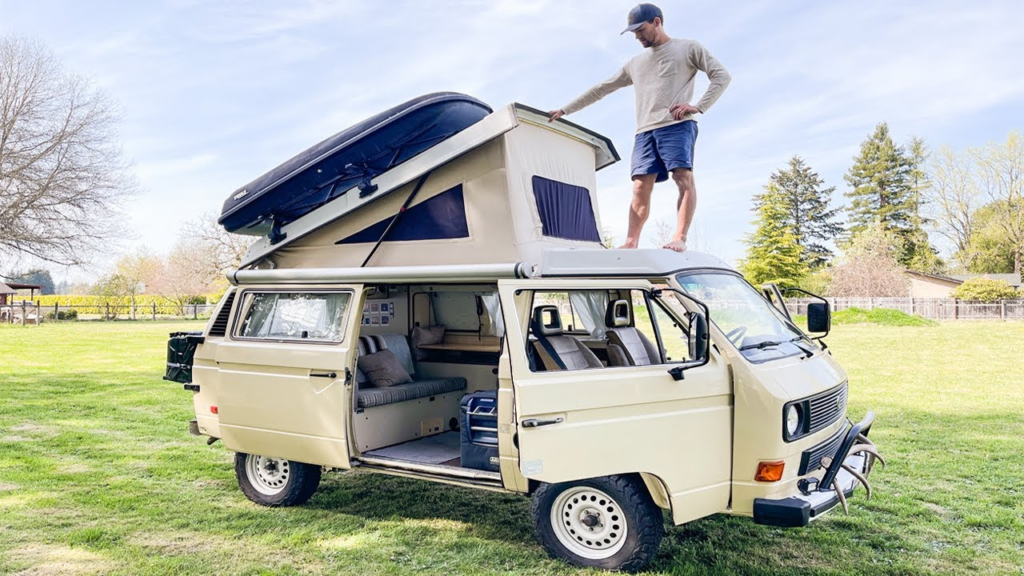
Specifications
Hippies and families alike believe the Volkswagen Westfalia to be one of the greatest vans to live in.
Even though this van is sluggish, dislikes slopes, and is pricey, it remains a favorite among van lifers.
The Westfalia has two comfy captain's chairs in the front, a small kitchen with a stove, refrigerator, sink, and a bed.
It also has a pop-up roof, allowing you to move around standing in your vehicle.
If you don't want to spend money converting your own vehicle, this is an excellent option.
However, if you want to go off-roading or drive in snowy or sandy conditions, this is not the vehicle for you.
Pros
Cons

Specifications
This compact campervan debuted in 2012.
If you want exceptional gas mileage, a powerful engine, and mobility, the Ford Transit Connect is one of the finest vans to live in.
The Connect has a maximum payload of 1,620 pounds and is available with a 2.5-liter 4-cylinder or 1.6-liter Ecoboost engine. It's also very easy to drive.
It's the second smallest van in its class. It has a little less cargo room than some of its competitors.
Pros
Cons
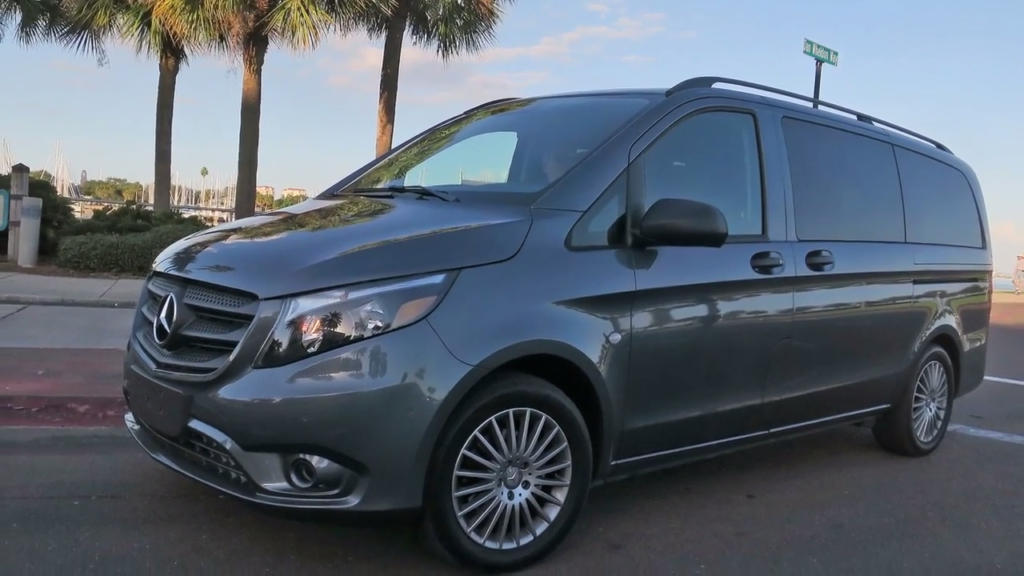
Specifications
The Mercedes Metris van debuted in 2015 for the North American market.
The Weekender kit features a pop-top roof with a bed that sleeps two people. It also has a sliding rear bench seat that transforms into a bed.
The Mercedes Metris is the most costly small cargo van on the market today due to its long wheelbase. It's also one of the most difficult to park.
On the upside, the Metris sports a turbocharged 2.0-liter, 4-cylinder engine, a 7-speed transmission, and a payload capacity of 2,502 pounds.
Pros
Cons
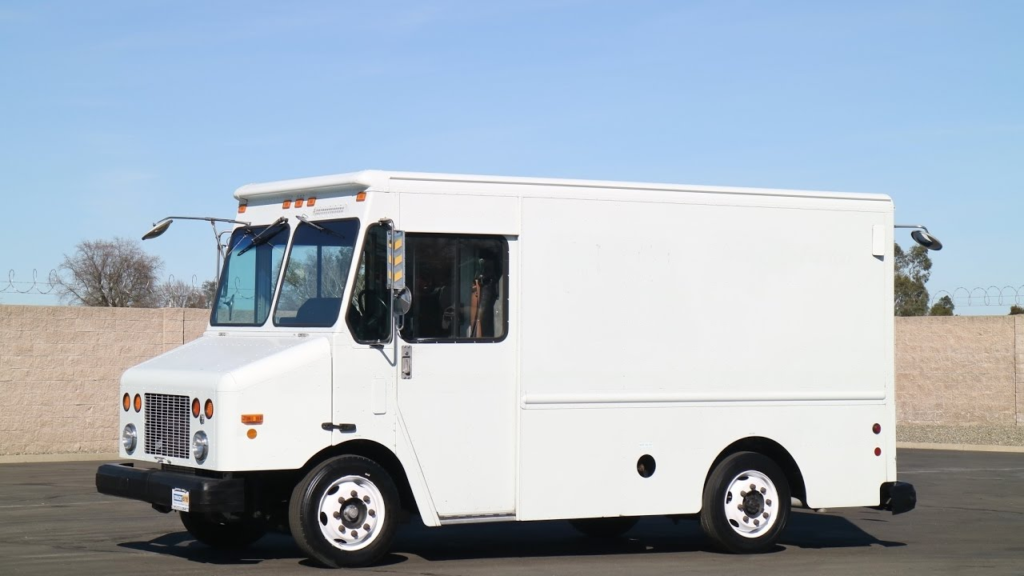
Specifications
Stepvan is a light-duty/medium-duty truck named for the step that leads up to the driver's compartment.
It was designed to be driven either sitting or standing.
Stepvans are now manufactured by General Motors, Ford, and Freightliner vehicles.
These boxy beasts are frequently seen on the street as delivery or food trucks.
A stepvan's spacious interior means you'll have enough room for a full kitchen, bathroom, bed, and office.
Because of the lack of windows, they make good stealth vehicles. Most people will assume you're a service vehicle.
These are generally low-slung vans that may not be ideal for serious off-roading.
Pros
Cons
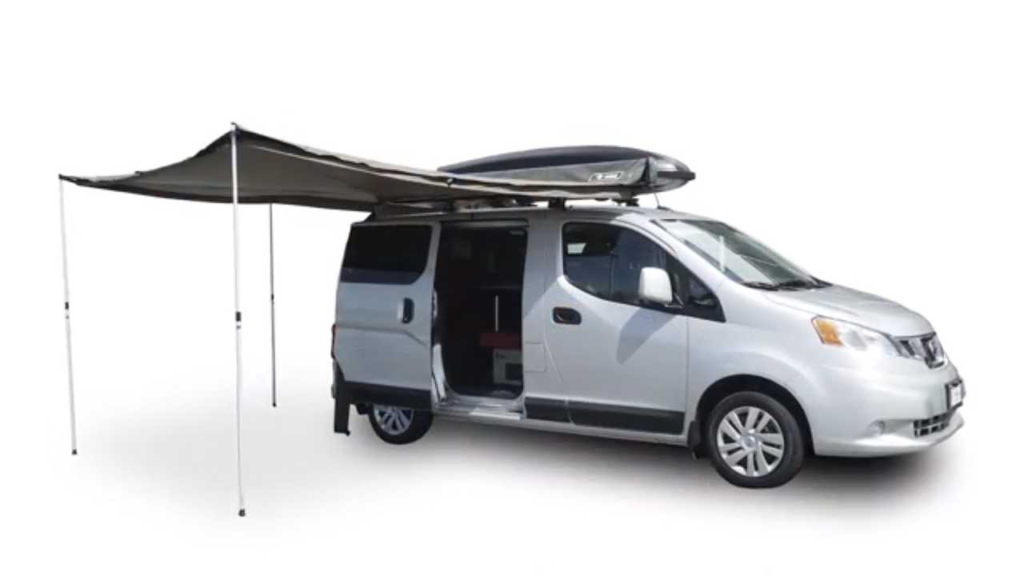
Specifications
The Nissan NV is covert because it is frequently utilized as a work vehicle rather than a conversion car or van.
They're also less expensive than the more popular vans while offering enough space for good conversions.
One of the Nissan NV's drawbacks is that it's a little top-heavy. It's also only available in two-wheel drive.
However, when compared to its competitors, The NV's towing capability is rather excellent, topping out at a massive 9,400 pounds.
Nissan provides a 5-year or 100,000-mile warranty on all vans purchased at the dealership.
Pros
Cons

Specifications
The Sportsmobile Classic 4x4 was designed to be an offroad adventurer's dream.
They are based on the Ford E-series chassis and feature a pop-top "penthouse," a complete kitchen, and a convertible bed.
The vehicle also has a 10-gallon freshwater tank, a 12-gallon gray water tank, a full solar setup, shore power, and water hookups.
The Sportsmobile classic has all of the capabilities and ground clearance you could want.
They are one of the most expensive options on this list, going over $175,000.
This is a great option for those who want something high-end already converted.
Pros
Cons
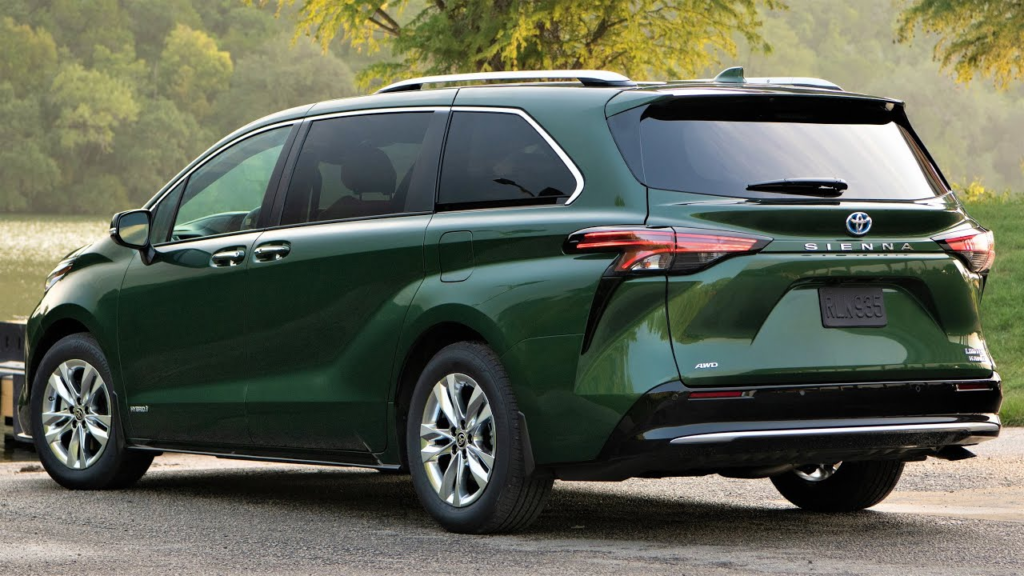
Specifications
The Toyota Sienna is a popular minivan camper since it is one of the few modern vans with All Wheel Drive. It's longer than both the Ford Transit Connect and the Ram Promaster City.
The latest 2021 Siennas are all hybrids, which means you'll receive excellent gas mileage over all terrains.
If you don't mind giving up AWD, you could also consider the Honda Odessey and Chrysler Pacifica.
Pros
Cons
You don't have to buy a van to live life on the road. If you're willing to bend the rules, there are some interesting options to consider.

"Skoolies" are well-known for being dependable and inexpensive to acquire.
On the inside, school buses are typically 6'6 tall. This makes them an excellent alternative for tall van dwellers.
Many owners can design several rooms and attain a truly tiny house atmosphere.
A great resource to learn and check out cool conversions is the subreddit r/skoolies.

Lifted Tacomas and Safari-style Land Rovers, for example, are better suited to boondocking vacations, foreign nations, and forest roads.
However, they have a considerably more expensive powertrain for the amount of living space you receive. The extra costs come from continued maintenance and expensive parts, such as with the Unimog.

Box trucks are great for those interested in stealth camping with extra cabin and storage space.
Most box trucks have lots of standing room and are AWD equipped.
The boxy design also provides more space and is easier to construct than some of the other vans with unusual shapes.

Class B RVs are aftermarket cargo vans that have been fully altered.
They tend to be more expensive, have water tanks, shore electricity, and a fully equipped kitchen.
Because they've been professionally transformed, they're registered as RVs.
Interior quality is sometimes subpar for long-term residents. However, they typically have innovative storage and efficient layouts.
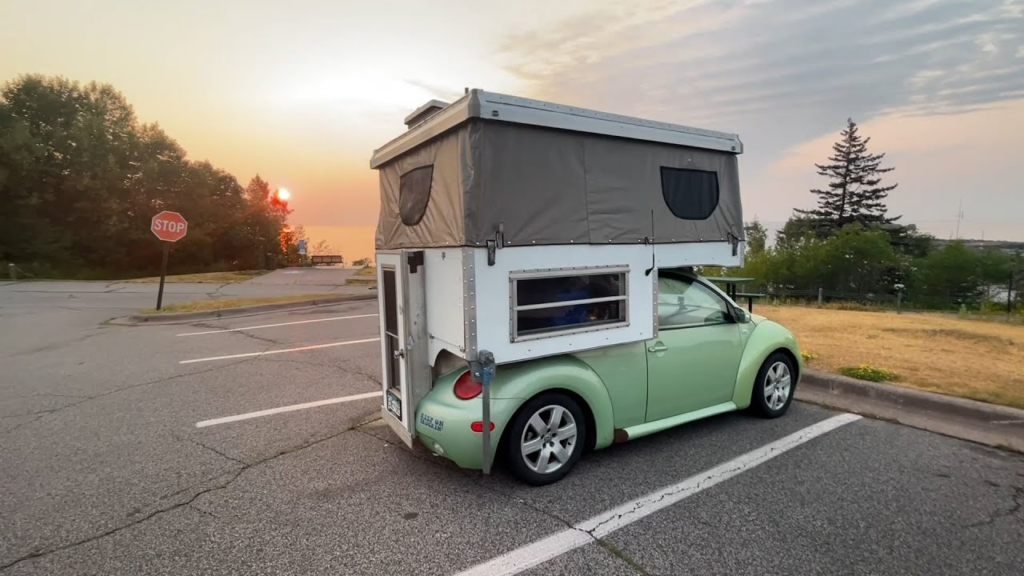
A lot of people turn ordinary cars and passenger vans into mobile homes.
It can be as simple as throwing in a mattress and packing up some kitchen items.
However, if you're willing to invest, you could travel the country from your car without the need for additional lodgings.
The Subaru Outback is one of the most popular ones you see out there because of their off road capabilities and available accessories.
Benefits include better gas mileage and easier parking.
Your van's build is largely determined by how you plan to use your van. Here are some tips to help guide you.
Take a test trip
If you've never lived in a van before, find someone with a conversion vehicle or RV and head out for a weekend.
If you've been roving solo take it for a test drive with the person you plan to travel with.
Just because you've lived in a van before doesn't imply you can live in one with someone who has never lived in one before.
Make sure you have sound mechanics
Refitting old inoperable vehicles in the hopes of saving money is not a good idea.
Always start with a van in solid working condition.
It's also a good idea to have a trusted mechanic inspect the vehicle before purchasing.
Think long term
Living in a van is not the same as taking shorter excursions.
Having something like a high roof becomes a big deal when inclement weather has shut you indoors for the weekend.
Don't skimp on the features and necessities you can't live without in your home or apartment.
Know there will be plenty of rainy days
It's easy to be seduced by the adventurous appearance of van life you see on YouTube.
The truth is that not every day makes it onto a social media feed.
There will be plenty of less-than-beautiful camping spots, repairs, mechanical and electrical hiccups, and those days where everything that can go wrong, does.
Manage expectations
Maybe you've heard the saying, "it's not an adventure until there is a problem."
Van life is about trading comfort and things for meaningful experiences. For most, that means experiencing an entirely new lifestyle.
Do yourself a favor, let go of your current expectations, be brave, and take what comes your way in stride. Once you do, we'd love to hear about what stories you have down in the comments!